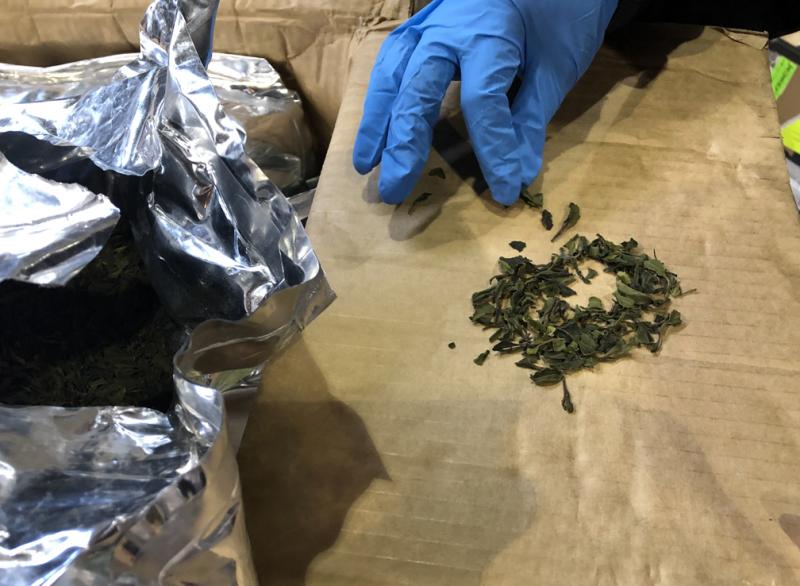STERLING, Virginia – U.S. Customs and Border Protection (CBP) officers seized nearly 269 pounds of khat Wednesday in air cargo at Washington Dulles International Airport that arrived from Nigeria

khat from Nigeria.
CBP officers inspected the shipment February 16. The shipment was manifested as “green tea leave,” and consisted of three boxes that contained 56 bags of dried green plant material. The khat weighed 122 kilograms, or about 268 pounds, 15 ounces.
Officers submitted samples to a U.S. Department of Agriculture (USDA) botanist who verified the substance Tuesday as Catha Edulis, commonly known as khat. Officers seized the khat, which will be destroyed.
“Customs and Border Protection is our nation’s first line of defense against transnational criminal organizations that thrive on the sale of illicit products such as khat to fund their other nefarious businesses,” said Casey Durst, CBP’s Field Operations Director in Baltimore. “We will remain steadfast in our commitment to secure our homeland and to protect the health of our families and communities by intercepting these dangerous drugs when we encounter them.”
Khat is a green, leafy plant typically grown in East Africa and the Arabian Peninsula and is chewed for its stimulant effect. The World Health Organization classified khat as a drug of abuse in 1980.
The Drug Enforcement Administration classifies cathinone as a schedule 1 drug – the most restrictive category used by the DEA. Please see more information on the DEA Khat Fact Sheet.
CBP routinely conducts inspection operations on arriving and departing international flights and intercepts narcotics, weapons, currency, prohibited agriculture products, counterfeit goods and other illicit items at our nation’s 328 international ports of entry. Learn what more CBP achieved during "A Typical Day" in 2017.
CBP's Border Security mission is led at ports of entry by CBP officers from the Office of Field Operations. Please visit CBP Ports of Entry to learn more about how CBP’s Office of Field Operations secures our nation’s borders.
Learn more about CBP at CBP.gov.

